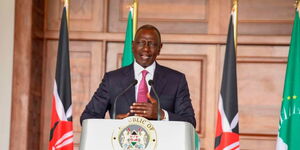Kenya is among eight African nations expected to fast-track approval for a groundbreaking malaria drug tailored for babies and young children, marking a global first in the fight against the disease.
The drug, which goes by different brand names, including Riamet Baby in some regions, was recently approved in Switzerland, according to its manufacturer, Novartis.
The pharmaceutical company revealed on Tuesday that the newly approved formulation—Coartem Baby—is designed specifically for infants and young children. It builds on the original Coartem launched in 1999 but now features a dosage suitable for newborns, according to Reuters.
One of the unique features of the drug is that it dissolves easily—even in breast milk—and has a sweet cherry flavour, making it more palatable and easier to administer to infants.
Until this development, infants weighing under 4.5 kilograms had no approved malaria treatment option, creating a critical gap in care, Novartis noted.
The African countries that participated in the joint assessment process, alongside Kenya, include Burkina Faso, Côte d’Ivoire, Malawi, Mozambique, Nigeria, Tanzania, and Uganda.
With the regulatory groundwork laid, these countries are now expected to move swiftly in approving the drug, offering hope for thousands of vulnerable children across malaria-endemic regions.
Kenya records an estimated 1.5 to 1.6 million births annually, according to data from the Kenya National Bureau of Statistics (KNBS) and the World Bank.
As a malaria-endemic country, many of these infants are born in high-risk areas, especially in western Kenya, the coast, and parts of the Rift Valley.
Kenya has made significant strides in the fight against malaria, with deaths dropping by 93 per cent over the past eight years, from about 15,061 in 2015 to just 1,060 in 2023, according to data from the Ministry of Health. Despite this progress, malaria remains one of the country’s deadliest diseases, particularly for children under the age of five.
The World Health Organisation estimates that approximately 4,000 Kenyans, mostly young children, still die annually from malaria. The disease also accounts for between 13 and 15 per cent of all outpatient visits in public health facilities, making it a persistent public health concern across many parts of the country.
The approval of a new malaria treatment specifically designed for infants under 4.5 kilograms, a group previously underserved by available medications, is expected to address this critical treatment gap.












